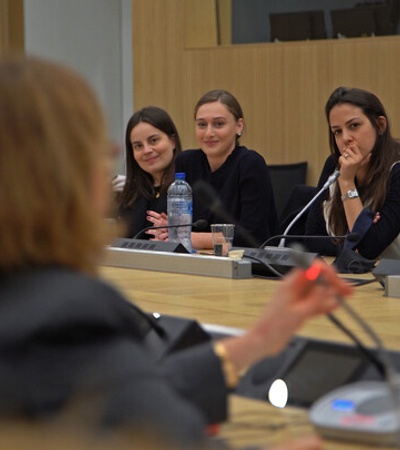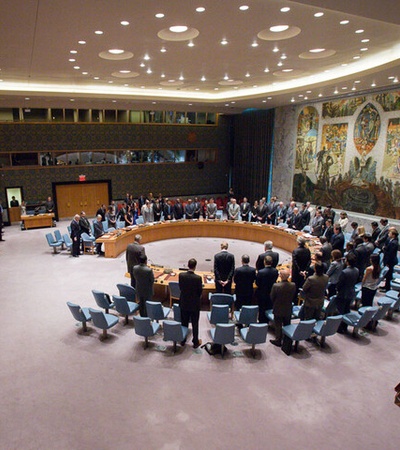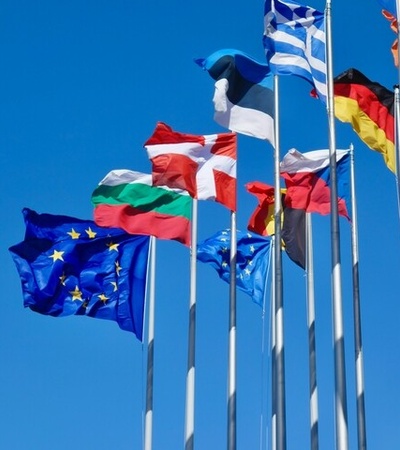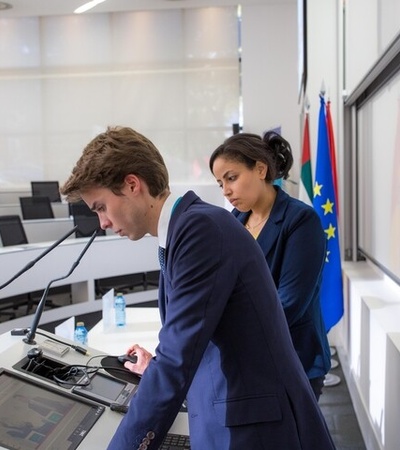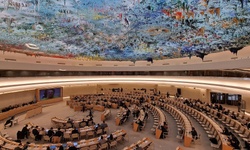
Global Governance and International Organizations
Overview
Overview
The Global Governance and International Organizations Specialization prepares future policymakers to navigate and shape the institutions that define the global order. In an era of interconnected challenges, from climate change and inequality, to migration and technological disruption, this specialization equips you with the knowledge and tools to lead effective multilateral initiatives.
You will explore how international institutions, norms, and networks, including the UN, IMF, World Bank, WTO, and regional bodies, interact with economy and governance. By combining theory and applied learning, you will develop the skills to design policies, coordinate transnational initiatives, and drive accountable, sustainable solutions.
With a strong focus on hands-on learning, courses and projects immerse you in climate diplomacy, international development, and migration governance, allowing you to translate insights into action. Madrid provides a unique setting to engage with global networks, giving you the opportunity to implement strategies that advance meaningful change on an international scale.

Want to know more?
Who is it for?
Who is it for?
This track is designed for students who aspire to shape the future of global governance and international organizations. It develops expertise in multilateralism, human rights, sustainability, climate governance, and international law, while building practical skills in advocacy, digital diplomacy, policy reform, and stakeholder engagement. Ideal for those pursuing careers in international organizations, NGOs, governments, the EU, or the private sector, the specialization prepares graduates to design and implement strategies that advance justice, sustainability, and effective multilateral solutions in a complex global landscape.
- José Ignacio Fernández-SalvadorSenior Manager
ANY DOUBTS?
Schedule a personal consultation call with our Program Specialist and solve all your questions!
What makes this specialization stand out?
What makes this specialization stand out?
Careers
Careers
Graduates of the Global Governance and International Organizations specialization are prepared to lead and collaborate across the international system. They acquire the diplomatic, legal, and analytical skills needed to design and implement global solutions to today’s most pressing challenges, from conflict and climate change to migration and human rights.
- 01.
Diplomatic and Government Services
Serve as national diplomats or foreign affairs officers in ministries of foreign affairs, justice, or development. Contribute to foreign policy design, international negotiations, and multilateral coordination on security, climate, and human rights.
- 02.
International and Regional Organizations
Work in the United Nations, European Union, African Union, or World Banks as policy analysts, governance advisors, or programme officers, helping design reforms, strengthen institutional accountability, and advance sustainable development goals.
- 03.
Global Advocacy, Human Rights, and Development NGOs
Join international NGOs, foundations, and advocacy groups as human rights officers, campaign managers, or development advisors, leading initiatives on inclusion, gender equality, climate action, and social justice.
- 04.
Private Sector and Public Affairs
Pursue roles in public affairs, ESG strategy, or stakeholder engagement for corporations, consultancies, or international firms. As global affairs advisors or sustainability strategists, you’ll help build partnerships and align business objectives with international governance standards.
- 05.
Think Tanks, Research Centres, and Academia
Contribute as research fellows, international law specialists, or governance analysts, producing insights on institutional reform, global cooperation, migration governance, or digital diplomacy to inform policy and public debate.
- 06.
Humanitarian and Peacebuilding Organisations
Work in conflict prevention, transitional justice, or peacebuilding programmes, supporting negotiation, mediation, and institutional recovery in post-crisis contexts.

